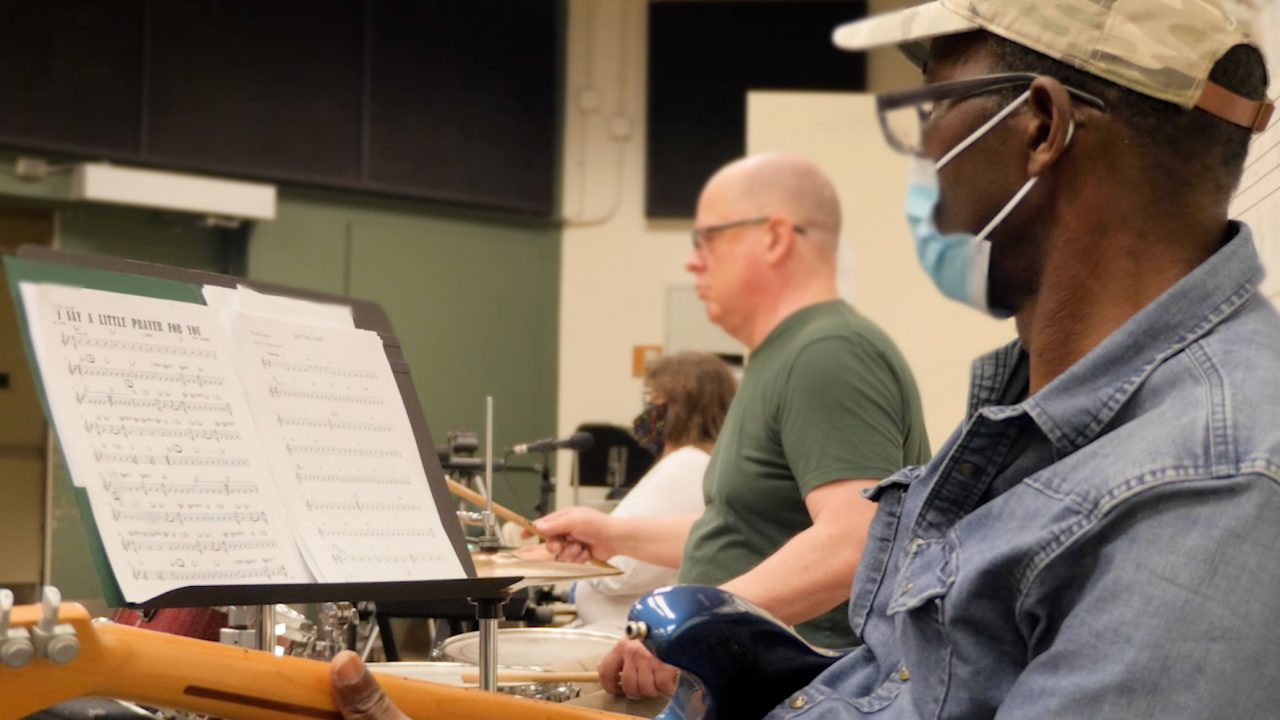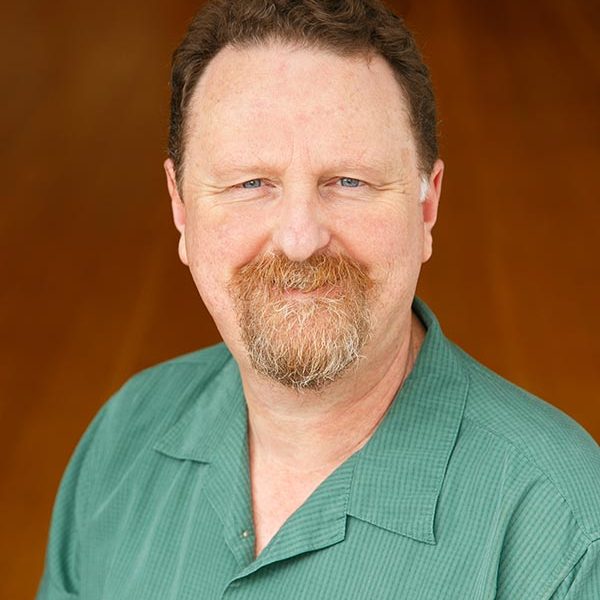Music Skills (Musicianship)
A challenging and highly rewarding series of classes, Music Skills include: ear-training, sight singing, melodic and harmonic dictation. Required for music majors and recommended for non-music majors who have some background in music. These courses are not recommended for students without prior music experience and should be taken in sequence. It is recommended that students also take the corresponding Music Theory course (101-104).
Pre/Co-requisites: MUSIC 100, 101, 102, 103, 104, or instructor approval.
Music Skills I (MUSIC 121), Music Skills II (MUSIC 122), Music Skills III (MUSIC 123), Music Skills IV (MUSIC 124)
Music Theory
The Laney College Music Department offers a full range of Theory, Music Skills, and Music History classes both for students planning to transfer to four year programs and for musicians seeking to broaden their professional skills. It is highly recommended that students take the corresponding level of Music Skills along with each theory class.
Music Fundamentals (100) for non-majors.
MUSIC 101: Music Theory and Culture I and MUSIC 121: Music Skills I
MUSIC 102: Music Theory and Culture II and MUSIC 122: Music Skills II
MUSIC 103: Music Theory and Culture III and MUSIC 123: Music Skills III
MUSIC 104: Music Theory and Culture IV and MUSIC 124: Music Skills IV
Degrees
Here are the requirements for the Musicianship and Performance Certificate of Achievement and the Music Theory Certificate of Achievement.
The Musicianship and Performance Certificate of Achievement recognizes mastery of essential musicianship and music skills classes and in public performances. Students will employ Solfège, melodic dictation, harmonic dictation, melodic analysis, interval recognition, key signatures, time signatures, metric modulation, poly-rhythms.
After completing this program, students will be to teach private lessons, perform in concerts, or continue with their studies towards an associate degree.
Career Opportunities
Music teacher, performer, recording artist, promoter, arts management, arts administration.
Course Sequence
| Group 1: Music Skills All of the following (4 units) | ||
|---|---|---|
| MUSIC 121 | Music Skills I | 1 |
| MUSIC 122 | Music Skills II | 1 |
| MUSIC 123 | Music Skills III | 1 |
| MUSIC 124 | Music Skills IV | 1 |
| Group 2: Ensemble Performance - Select a minimum of 4 units from the following (4 units) May include repeatable courses for a total of 4 units |
||
| MUSIC 32 | Chinese Orchestra | 1 |
| MUSIC 52A | Orchestra | 1 |
| MUSIC 125 | Chorus | 1 |
| MUSIC 126 | Jazz Orchestra | 1 |
| MUSIC 127 | Jazz Combos | 1 |
| MUSIC 128 | Choral Repertoire | 1 |
| MUSIC 129 | Jazz Orchestra Repertoire | 1 |
| MUSIC 142 | Instrumental Ensemble | 1 |
| MUSIC 144 | Intermediate Jazz Combos | 1 |
| MUSIC 145 | Advanced Jazz Combos | 1 |
| MUSIC 146 | Advanced Choral Repertoire | 1 |
| MUSIC 151 | Pop Music Ensemble | 1 |
| TOTAL MAJOR UNITS: | 8 | |
Program Learning Outcomes
Upon completion of this program a student will be able to:
- Employ proper use of Solfège.
- Accurately take melodic and harmonic dictation.
- Perform in public concerts.
The Music Theory Certificate of Achievement recognizes mastery of essential music theory. Students will
employ harmonic analysis using both Roman Numeral and Alphabet Chord systems, figured-bass, voice-leading, chord construction, inversion, harmonic progression, scales, and modes, introduction to atonal theory. After completing this program, students will be to teach private lessons, compose music, or continue with their studies towards an associate degree.
Career Opportunities
Music teacher, performer, recording artist, promoter, arts management, arts administration.
Course Sequence
| Music Theory (12 units) | ||
|---|---|---|
| MUSIC 101 | Music Theory and Culture I | 3 |
| MUSIC 102 | Music Theory and Culture II | 3 |
| MUSIC 103 | Music Theory and Culture III | 3 |
| MUSIC 104 | Music Theory and Culture IV | 3 |
| TOTAL MAJOR UNITS: | 12 | |
Program Learning Outcomes
Upon completion of this program a student will be able to:
- Harmonic analysis: Using both Roman Numeral and Alphabet Chord systems, successful students will analyze given excerpt of music related to the Jazz repertoire.
- Chord construction: Successful students will explain, construct, and employ proper chord voicings, including inversions, and harmonic progressions. All common chord structures from triads to 13th chords will be included.
- Music Composition: Under the guidance of the instructor, successful students will compose original compositions demonstrating principals of harmony and voice leading as presented in class.
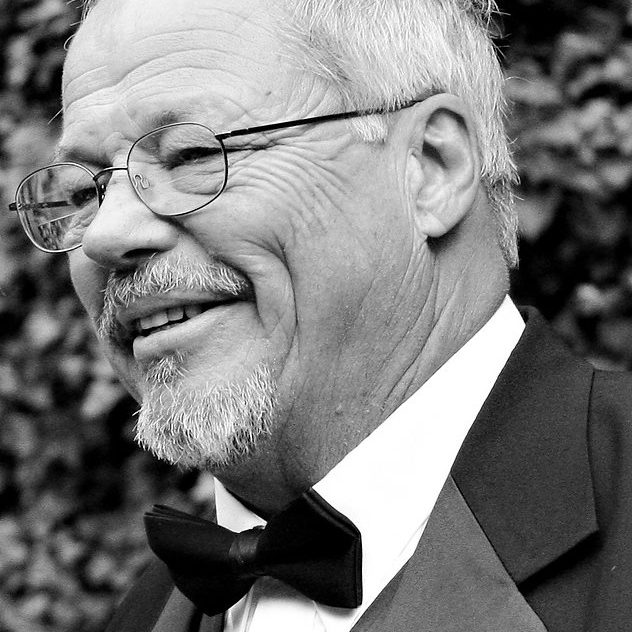
Jay Lehmann
Faculty (Conducting, Theory, History, Winds and Brass)
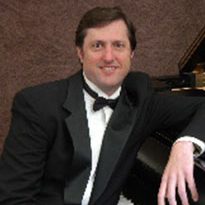
Scott Pratt
Faculty (Piano)
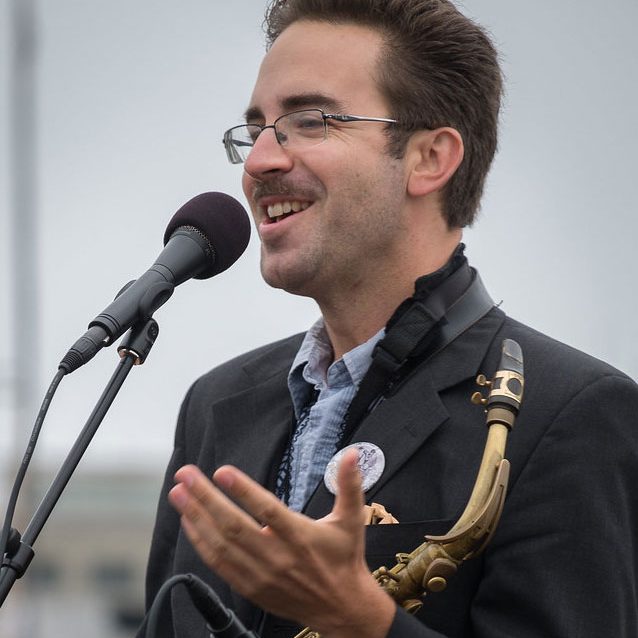
Charles Gurke
Faculty (Jazz)


